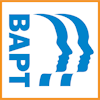You are the best judge of your Type, so it’s up to you to make the final decision about your Type. The questionnaire is just an indicator of your possible Type.
Also, remember, whilst learning about your own Type is very useful for personal development, it is also important to learn about the other types so that you can relate to them better.
Once you have decided which four are your preferences, read the description of your whole Type. If you have still not decided which four letters best suit you, read a few of the descriptions below and see which one best describes you.
The four letters of your Type combine and interact with each other to give your whole Psychological Type. (BAPT members can also look at the Type Verifier in the Members’ Area).
These are short descriptions of each of the 16 Jungian personality types, in the standard Type Table layout. Each type will have things in common with adjacent types, with types in the same half of the table and in the same column or row. You may see aspects of yourself in several of the descriptions, however there should be one that describes you at your most comfortable.
ISTJ Reserved, systematic, logical, dutiful & dependable. Like to do their research before acting & look for efficiency. Tend to stay within their comfort zone & change only when they see it as necessary. Can become inflexible and anxious when faced with ambiguity or the unknown
ISFJ Quietly supportive & very loyal. Conscientious & have a sense of duty to others in a work place. Tend to find it easy to remember details about others & take notice of anniversaries & traditions. Can become anxious about being seen to do the right thing by others
INFJ Look for meaning & purpose in what they do. Like to have a vision about how things should be & aim to gently relate to others according to this. Enjoy creativity & thinking about what makes people tick. Can become stressed & withdrawn when the world doesn’t fit their ideal vision
INTJ Like to think of & implement new, goal oriented ideas. Tend to see connections between things quickly. Enjoy theorising & strategising. Independent minded, logical & questioning. Can become intolerant of others’ ‘interference’ with their ideas & plans
ISTP Quiet observers with a tendency to go with the flow until there is a logical problem to solve, then they spring to action. Practical, analytical & independent. They like to understand how things work. Can become impersonal and unaware of their emotional impact on others
ISFP Considerate, kind, sensitive & gentle. Committed to their values but generally unlikely to force these on others. Loyal to those that are important to them & true to themselves. Playful & spontaneous in life. Can become over-sensitive, be a push-over for others, & become self-doubting
INFP Values driven & idealistic about the world. Seek a life that is congruent with their values & beliefs. Quietly accommodating, yet tough when their values are threatened. Supportive, good listeners. Can become judgemental, & be dogmatic & unrealistic about their beliefs
INTP Enjoy logical problem solving & can see beyond the usual limits of thought. Analytical & sceptical, they will take their time to get to the best solution. Enjoy gaining expertise in their area of interest. Can become detached, emotionally & physically, & try to fit logic to everything
ESTP Realistic, flexible, logical & practical. Like to take practical action, particularly in a crisis. Live for the moment & get bored with long processes & boundaries. Often fun loving & good company. Can become hedonistic & create crises for fun, & unaware of consequences
ESFP Outgoing, flexible, lively & life-loving. Tend to be entertaining company & caring & loyal towards those important to them. Bring fun & common sense to situations. Willing to take risks. Action oriented. Can become impulsive & thrill seeking, & can over-personalise situations
ENFP Energetic, imaginative & constantly scanning for inspiration & possibilities. Enjoy the process of having ideas & creating a vision. Tend to be optimistic & enjoy being part of a team. Excited by change & ideas. Can become blind to negatives and realities, or constantly seeking the ideal
ENTP Actively look for new opportunities & novel solutions to problems. Look for logic & enjoy the challenge of debate, sometimes playing ‘devil’s advocate’. Social, yet selective with closeness.Can become easily bored, argumentative & unaware of others’ needs or feelings
ESTJ Action oriented & striving for efficiency & completion of tasks. Tend to be rule conscious & have a good eye for the details. Firm yet fair in dealing with others. Approach life with consistency & logic. Can become too focused on tasks at the expense of people & enjoyment
ESFJ Find practical ways to help others & maintain harmony. Enjoy organising things for others & like to be appreciated for their efforts in return. Quick to mediate during conflict. Loyal, dutiful & thorough. Can become too focused on helping others than helping self, leading to resentment
ENFJ Seek to inspire others & help others to develop & grow. Enjoy working in teams with shared values & aspirations. Caring, helpful & empathic. Try to see the good in others & focus on the positives & the future. Can become intrusive to others, & have feelings of being undervalued
ENTJ Enjoy taking the lead in groups & getting the best results. Critically evaluate & seek improved ways of doing things. Forthright with their views & decisive. Seek challenge & new opportunities for progress. Can become dominating, forceful & condescending, & ‘my way or no way’ style

